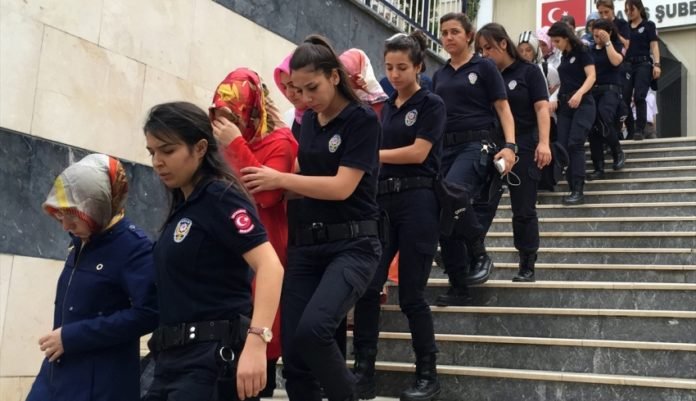A report by the US State Department regarding a series of “significant human rights issues” in Turkey has highlighted the crackdown launched by President Recep Tayyip Erdoğan’s government on the faith-based Gülen movement, which intensified following an attempted coup in 2016, Turkish Minute reported.
The “2020 Country Reports on Human Rights Practices: Turkey” released late on Tuesday revealed the lingering tensions with Turkey under President Joe Biden, who criticized Erdoğan as an “autocrat” in a meeting with The New York Times in 2019 and hasn’t called him since taking office in January.
The report said the broad anti-terror legislation passed in the country in 2018 allowed the Justice and Development Party (AKP) government to continue restricting fundamental freedoms and compromising the rule of law, referring to the crackdown on real and alleged members of the Gülen movement, a worldwide civic initiative inspired by the ideas of US-based Muslim cleric Fethullah Gülen.
“Since the 2016 coup attempt, authorities have dismissed or suspended more than 60,000 police and military personnel and approximately 125,000 civil servants, dismissed one-third of the judiciary, arrested or imprisoned more than 90,000 citizens, and closed more than 1,500 nongovernmental organizations on terrorism-related grounds, primarily for alleged ties to the movement of cleric Fethullah Gulen,” the US report said.
Erdoğan’s AKP government label the group a terrorist organization and accuses it of orchestrating the abortive putsch that took place on July 15, 2016, and killed over 200 civilians, despite the strong denial of both Gülen and his followers of any involvement in the coup or any terrorist activities.
The human rights issues addressed in the report also included suspicious deaths of persons in custody; forced disappearances; torture; arbitrary arrest and the continued detention of tens of thousands of persons, including opposition politicians and former members of parliament, lawyers, journalists, human rights activists and employees of the U.S. Mission for “purported ties to ‘terrorist’ groups or peaceful legitimate speech.”
The State Department also mentioned significant problems with judicial independence in Turkey in the report, emphasizing the severe restrictions on freedom of expression, the press and the Internet, including violence and threats of violence against journalists, closure of media outlets and the unjustified arrest or criminal prosecution of journalists and others for criticizing government policies or officials.
Impunity remained a problem in Turkey in 2020, according to the report, which said the AKP government took “limited” steps to investigate, prosecute and punish members of the security forces and other officials accused of human rights abuses.
“Clashes between security forces and the Kurdistan Workers’ Party [PKK] terrorist organization and its affiliates continued … and resulted in the injury or death of security forces, terrorists, and civilians,” the report noted, adding that the Turkish government had not released information on efforts to investigate or prosecute personnel for wrongful or inadvertent deaths of civilians linked to counterterrorist operations.
The PKK, designated a terrorist group by Turkey, the US and the European Union, took up arms against the Turkish state in 1984. More than 40,000 people have been killed in the conflict, focused in southeastern Turkey.















